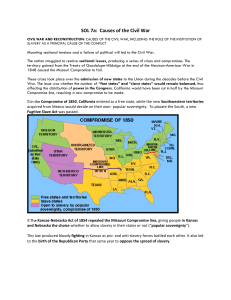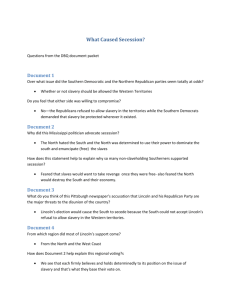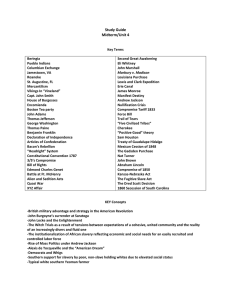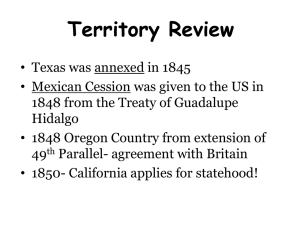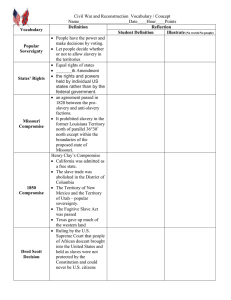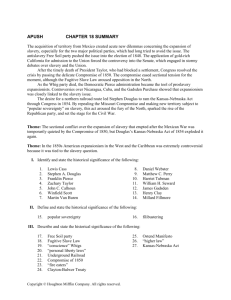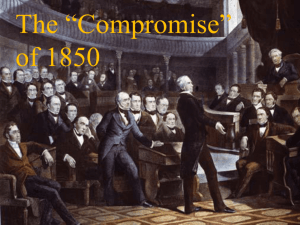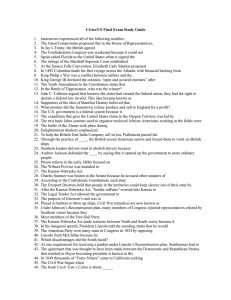Causes of the Civil War - Fredericksburg City Public Schools
advertisement
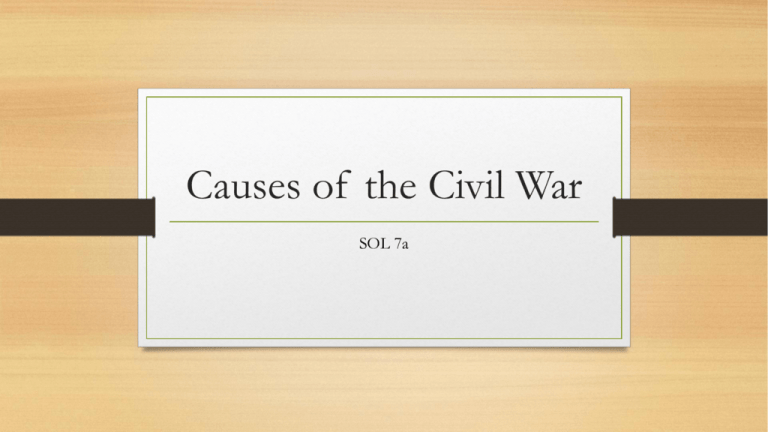
Causes of the Civil War SOL 7a CIVIL WAR AND RECONSTRUCTION: CAUSES OF THE CIVIL WAR, INCLUDING THE ROLE OF THE INSTITUTION OF SLAVERY AS A PRINCIPAL CAUSE OF THE CONFLICT • Mounting sectional tensions and a failure of political will led to the Civil War. • The nation struggled to resolve sectional issues, producing a series of crises and compromises. The territory gained from the Treaty of Guadalupe-Hildalgo at the end of the Mexican-American War in 1848 caused the Missouri Compromise to fail. • These crises took place over the admission of new states to the Union during the decades before the Civil War. The issue was whether the number of “free states” and “slave states” would remain balanced, thus affecting the distribution of power in the Congress. California would have been cut in half by the Missouri Compromise line, requiring a new compromise to be made. Compromise of 1850 • In the Compromise of 1850, California entered as a free state, while the new Southwestern territories acquired from Mexico would decide on their own- popular sovereignty. To placate the South, a new Fugitive Slave Act was passed. Bleeding Kansas • The Kansas-Nebraska Act of 1854 repealed the Missouri Compromise line, giving people in Kansas and Nebraska the choice whether to allow slavery in their states or not (“popular sovereignty”). • This law produced bloody fighting in Kansas as pro- and anti-slavery forces battled each other. It also led to the birth of the Republican Party that same year to oppose the spread of slavery. Causes of the Civil War in the 1850s • Sectional disagreements and debates over tariffs, extension of slavery into the territories, and the nature of the Union (states’ rights) • • Northern abolitionists versus Southern defenders of slavery • • United States Supreme Court decision in the Dred Scott case Causes of the Civil War • • Publication of Uncle Tom’s Cabin by Harriet Beecher Stowe • • Ineffective presidential leadership in the 1850s • • A series of failed compromises over the expansion of slavery in the territories Secession of the South • • Election of Lincoln (1860), followed by the secession of several Southern states that feared Lincoln would try to abolish slavery • • President Lincoln’s call for federal troops in 1861 • The secession of Southern states triggered a long and costly war that concluded with Northern victory and resulted in the restoration of the Union and emancipation of the slaves.
